Team
Principle Investigator

Arpana Church, PhD
Co-Director, Goodman-Luskin Microbiome Center
Director, Neuroimaging Core, G. Oppenheimer Center for Neurobiology of Stress and Resilience
Ingestive Behavior and Obesity Program
Associate Professor
Vatche and Tamar Manoukian Division of Digestive Diseases
David Geffen School of Medicine at UCLA
Dr. Church completed a PhD degree in psychology, followed by an APA accredited clinical internship at Massachusetts General Hospital/Harvard Medical Center. Her programmatic line of research focuses on the interactions between environmental and biological factors in shaping neurobiological phenotypes associated with stress-based diseases such as obesity. Broadly defined, her research aims to integrate two systems (the brain and the gut) in order to better understand the underlying mechanisms associated with obesity and altered ingestive behaviors. The application of a “systems biology” approach to her research allows her to test the interactions between multiple factors, both inside and outside the body (e.g., sex, race, brain, microbiome, inflammation, environment), in order to better understand the complex pathophysiology of obesity. This is relevant to obesity, as it is a risk factor for many chronic diseases, and disproportionately affects ethnic minorities and women. These alarming projections have led to NIH and Healthy People 2020 priority initiatives directed at reducing ethnic and sex disparities. Her goal is to develop a comprehensive model that provides a powerful and sensitive biomarker that will increase biological readouts of obesity and altered ingestive behaviors, thus bringing to the forefront those individuals who are at increased risk as a result of disadvantaged backgrounds.
In order to pursue this line of research she recently received a R01 grant from NIMHD (NIH) on the “Social Isolation and Discrimination as Stressors Influencing Brain-Gut Microbiome Alterations among Filipino and Mexican American.” She has also received several industry funded grants as PI and till date she has published over 70 peer-reviewed articles. These grants have allowed her to focus on the following main themes of research:
- Investigate how novel pathways related to the brain-gut-microbiome (BGM) system may explain modulation of signals from the gut-microbiome on the brain via systemic immune activation.
- Explain how risk factors associated with socio-cultural and environmental stressors “get under the skin” and are embedded in biology.
- Identify subgroup differences (e.g., race and sex) related to obesity.
- Model longitudinal patterns and changes across the lifespan as they relate to obesity in order to help predict risk factors leading up to the development of obesity while being able to identify prognostic markers.
- Determine changes associated with various interventions (e.g., brain-targeted such as cognitive behavioral therapy, or gut-based such as specific diets) directed at altered ingestive behaviors and obesity.
Investigators

Hiram Beltrán-Sánchez, PhD
Associate Professor, Department of Community Health Science, Fielding School of Public Health at UCLA
Associate Director, California Center for Population Research, UCLA
Dr. Beltrán-Sánchez' research focuses on population dynamics of health and aging with particular focus in Latin American countries. He studies the link between socioeconomic disadvantage and health from two different angles; first, how socioeconomic disadvantage makes some people die young and populations as a whole have worse health outcomes, and second, how indicators of physiological functioning link with individuals’ health outcomes, disease and disability and with populations overall survival. He co-founded the Latin American Mortality Database, the largest data repository of mortality from 19 countries in Latin America (including data from around 1850). In 2018 he received the early career achievement award from the Population Association of America.

Gilbert C. Gee, PhD
Professor, Department of Community Health Services, Fielding School of Public Health at UCLA
Dr. Gee's research focuses on the social determinants of health inequities of racial, ethnic, and immigrant minority populations using a multi-level and life course perspective. A primary line of his research focuses on conceptualizing and measuring racial discrimination, and in understanding how discrimination may be related to illness. He has also published more broadly on the topics of stress, neighborhoods, immigration, environmental exposures, occupational health, and on Asian American populations.

Lisa Kilpatrick, PhD
Associate Researcher
G. Oppenheimer Center for Neurobiology of Stress and Resilience
Vatche and Tamar Manoukian Division of Digestive Diseases
David Geffen School of Medicine at UCLA
Dr. Kilpatrick graduated from UCLA with a BS with honors in cognitive science and a BS in mathematics. Subsequently, she earned a MA in experimental psychology from Radford University and a PhD in biological sciences from University of California Irvine (UCI). At UCI, she trained with Dr. Larry Cahill, investigating sex differences in the role of the amygdala in emotional memory. Dr. Kilpatrick returned to UCLA to train with Drs. Bruce Naliboff and Emeran A. Mayer as a postdoctoral fellow, who continued to foster her interest in sex differences in the neurobiological correlates of emotional processes, including pain, stress, and resilience, in the context of irritable bowel syndrome and other pain conditions.
Her work has focused on the brain-related aspects of the connection between the brain and body that positively or negatively impact health in multiple research areas with a brain-body aspect, including disrupted brain-gut communication in obesity, brain signatures related to self-body perception before and after cross-sex hormone therapy in transgender individuals, facial dysmorphia-brain morphological relationships in children with attention deficit hyperactivity disorder due to prenatal alcohol exposure, and the impact of mind-body interventions on brain functional organization in late-life depression. Further, she has sought to understand the influence of sex on brain-body dysregulation, as an important step towards tailoring effective and beneficial therapies to the individual.

Jennifer S. Labus, PhD
Director, Integrative Biostatistics and Bioinformatics Core, G. Oppenheimer Center for Neurobiology of Stress and Resilience and Goodman-Luskin Microbiome Center
Adjunct Professor of Medicine
Vatche and Tamar Manoukian Division of Digestive Diseases
David Geffen School of Medicine at UCLA
Dr. Labus is an adjunct professor in the Vatche and Tamar Manoukian Division of Digestive Diseases in the Department of Medicine at University of California, Los Angeles (UCLA). She is the director of the Integrative Biostatistics and Bioinformatics Core in the G. Oppenheimer Center for Neurobiology of Stress and the Goodman-Luskin Microbiome Center.
Dr. Labus is a research scientist, biostatistician, and bioinformatician with expertise in supervised and unsupervised machine learning, treatment-outcome research, pain neuroscience, multimodal neuroimaging, metagenomics, metabolomics, foodomics, and multi-omic integrative analysis. Using state-or-the-art computational tools, she performs large-scale multi-omics integrative analyses to assesses the complex interactions between various levels of biological data (e.g., microbiome, metabolomics, immune markers, multimodal brain imaging data) with the exposome and clinical phenotypes. The overall goal of her systems-based biological approach is to elucidate the underlying physiological mechanisms of health and disease, provide new targets for treatment, improve existing treatments and advance precision-based medicine. She is currently applying this state-of-the-art approach to study chronic pain, scleroderma, obesity, autism, cognitive impairment, and Alzheimer’s disease.
Dr. Labus has made seminal contributions to mapping neural networks underlying visceral pain and elucidating brain-gut-microbiome system in humans. As a result, she was the recipient of the 2011 Master’s Award for Outstanding Achievement in Basic or Clinical Digestive Sciences, American Gastroenterology Association. Dr. Labus has been the recipient of a K08 Career Development award, Effective connectivity of central response in irritable bowel disorder, from the National Institute of Diabetes and Digestive and Kidney Diseases (NIDDK). She has served as the primary investigator on two grants funded by the National Institute of Childhood Health and Human Development (NICHD): R01HD076756 Profiling vulvodynia subtypes based on neurobiological and behavioral endophenotypes and R21HD086737 Deriving novel biomarkers of localized provoked vulvodynia through metabolomics: A biological system-based approach. She has also recently received funding from the National Vulvodynia Association to investigate dysregulation of ceramide-to-sphingosine 1-phosphate signaling pathways as a potential therapeutic target for provoked vestibulodynia. Dr Labus is a co-investigator and biostatistician on several NIH and industry funded grants, international research collaborations, and is actively involved in mentoring undergraduate, graduate and medical students and postdoctoral fellows.
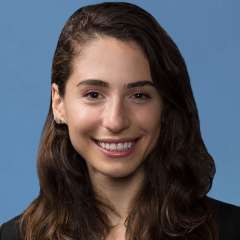
Rachel Sarnoff, MD, MSCR
Health Sciences Assistant Professor of Medicine
DGBI – Internal Medicine Specialist
Internal Medicine – Primary Care Provider
Division of General Internal Medicine
Vatche and Tamar Manoukian Division of Digestive Diseases
David Geffen School of Medicine at UCLA
Dr. Sarnoff graduated with honors from Brown University with a concentration in human health and biology. Between college and medical school, she returned to New York to work in Dr. Jeffrey Friedman’s molecular genetics lab at Rockefeller University, where she investigated genetic enhancer proteins for leptin hormone. She completed medical school at NYU Langone School of Medicine, where she was inducted into the Gold Humanism Honor Society as a student role model for compassionate and empathetic medical care. At NYU, she worked under the mentorship of Dr. Martin Blaser, investigating connections between the gut microbiome and precancerous colon polyps that was featured on CBS News.
Dr. Sarnoff completed her internal medicine residency and chief residency at UCLA, where her passion for teaching, communication, and innovation in medical education and patient care led her to receive multiple teaching and young investigator awards. Primed by her microbiome work and ignited by the complex patients she saw during her residency, her interest in the gut environment expanded to disorders of gut-brain interaction (DGBI). She worked in Dr. Arpana Church’s lab to explore brain-gut-microbiome signatures in irritable bowel syndrome subtypes, first-authoring a manuscript that was recently published in Neuropharmacology.
After chief year, Dr. Sarnoff partnered with her closest mentor, Dr. Lin Chang, to create a physician-scientist training program for herself with the goal of developing a DGBI niche within internal medicine. To learn how to design and critique clinical trials in the DGBI space, she completed a master of science in clinical research, for which she was awarded departmental funds. She was also Career Enhancement Core scholar within the Chang-Mayer SCORE NIH grant, where she designed her own study on sex differences IBS cellular immune response, as well as recruiting for clinical trials. Her research is also supported in part by the Goodman-Luskin Microbiome Center. Clinically, she trained for one year under DGBI specialists such as Dr. Chang as well as the Integrative GI interdisciplinary care team and then launched the inaugural DGBI-Internal Medicine Clinic at UCLA in the summer of 2024. She also practices as a primary care provider at internal medicine suites, where she trains residents and medical students. She is most interested in studying the effect of interdisciplinary care on DGBI, as well as identifying factors that influence risk of developing DGBI, such as sex differences, early life adversity, psychological comorbidity, and microbiome changes.
Dr. Sarnoff is board certified in internal medicine. She is dual appointed by the Divisions of General Internal Medicine and Digestive Diseases.
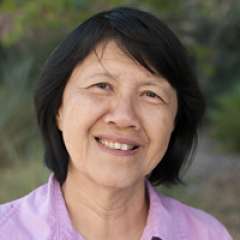
May Wang, PhD
Professor, Department of Community Health Sciences, Fielding School of Public Health at UCLA
Director, Interdisciplinary Graduate Certificate Program in Food Services, UCLA
Dr. Wang's research focuses on social and physical environmental influences on child nutrition, growth and health, and the contributions of policies, systems and the environment to nutrition and well-being. She is especially interested in addressing social disparities in child nutrition and the well-being of migrant families with a global perspective, and in applying systems science methods to advancing translational obesity-related research.
Postdoctoral Scholars and Fellows

Michelle Binod, MD, MPH
Pediatric Gastroenterology Fellow
Division of Pediatric Gastroenterology, Hepatology and Nutrition
Dr. Binod graduated from UC Berkeley with a BA in molecular and cell biology and minor in ethnic studies. There she did clinical research with Dr. Allison Harvey’s Sleep and Psychological Disorders Lab and Dr. Matthew Walker’s Sleep and Neuroimaging Lab. She received her MD/MPH from St. George's University. As part of her MPH, she did an internship at the California Department of Public Health to develop a policy platform for Trauma-Informed Practices as part of the Essentials for Childhood Initiative. She completed her pediatric residency at Rutgers Health Newark Beth Israel Medical Center. She joined UCLA in 2023 as a pediatric gastroenterology fellow and started her research training under the NIH T32 Gastroenterology training grant with the mentorship of Dr. Arpana Church and Dr. Tien S. Dong. Dr. Binod is board certified in pediatrics. Dr. Binod's research interest involves studying the role of ACE and sleep dysfunction on the brain-gut axis and its effect on irritable bowel syndrome severity.

Gabriel Alexander Vignolle, PhD
Postdoctoral Scholar
Goodman-Luskin Microbiome Center
Vatche and Tamar Manoukian Division of Digestive Diseases
David Geffen School of Medicine at UCLA
Dr. Vignolle is a bioinformatician in the Church Lab at the Vatche and Tamar Manoukian Division of Digestive Diseases and the Goodman-Luskin Microbiome Center at UCLA. He specializes in human multi-omics, immunology, and clinical decision intelligence, with a focus on integrating molecular, microbial, environmental, and socioeconomic data to advance precision medicine.
Dr. Vignolle holds a PhD in bioinformatics from TU Wien and brings over five years of experience in bulk, single-cell, and spatial RNA sequencing, as well as epigenetics, genetics, microbiome research, immunomics, proteomics, and multi-omics integration. His work bridges biomedicine, artificial intelligence, and computational biology to identify therapeutic targets, predict disease trajectories, and support personalized medical interventions.
Previously a scientist at the Austrian Institute of Technology, Dr. Vignolle led national and international projects focused on disease characterization and biomarker discovery, employing advanced machine learning and integrative data science approaches.
Fluent in English, German, Italian, French, and Luxembourgish, he combines scientific rigor with clinical insight, drawing on a background in pharmaceutical sciences and frontline experience as a paramedic. His mission is to transform complex biomedical data into actionable strategies that improve patient outcomes and help redefine the future of healthcare.

Xiaobei Zhang, PhD
Postdoctoral Scholar
Vatche and Tamar Manoukian Division of Digestive Diseases
David Geffen School of Medicine at UCLA
Dr. Zhang received her PhD in psychology from the University of Southern California. Her studies were focused on brain mechanisms involved in monetary and food decision-making. Her dissertation examined the impact of nutritive and non-nutritive sweeteners on value-tracking, food decisions and nutrition pathways in the brain.

Kanhao (Alex) Zhao, PhD
Postdoctoral Scholar
Goodman-Luskin Microbiome Center
Vatche and Tamar Manoukian Division of Digestive Diseases
David Geffen School of Medicine at UCLA
Dr. Zhao is a postdoctoral researcher in the Department of Medicine at the University of California, Los Angeles (UCLA), specializing in computational approaches to brain health. His expertise spans supervised and unsupervised machine learning, neuroimaging techniques, and integrative multi-omics. Dr. Zhao’s research combines functional brain connectivity, cognitive and emotional assessments, microbiome sequencing, metabolomics, and large clinical datasets (e.g., NHANES, ADNI) to understand how modifiable risk factors—like diet and obesity—accelerate neural aging and increase cognitive vulnerability.
His work focuses on integrating multimodal neuroimaging with microbiome and metabolomic data to uncover mechanisms behind early cognitive decline. Ultimately, Dr. Zhao aims to translate these findings into personalized interventions—such as dietary changes, microbiome-targeted treatments, and metabolite-based therapies—to slow obesity-related brain aging and reduce risks for cognitive impairment, neurodegenerative diseases, and mood disorders. He is currently applying this approach to study obesity, gut dysbiosis, cognitive aging, Alzheimer’s disease, anxiety, and depression.
During his PhD at Lehigh University, Dr. Zhao developed machine learning methods to enhance diagnostic accuracy and treatment strategies for brain disorders. He also serves as a peer reviewer for leading journals including Nature Mental Health, Medical Image Analysis, IEEE Transactions on Medical Imaging, and Neuropsychopharmacology.
Residents

Michelle Guan, MD
Resident Physician, Internal Medicine
David Geffen School of Medicine at UCLA
Dr. Guan graduated summa cum laude as a regents and alumni scholar with a degree in psychobiology and a minor in biomedical research and her medical degree from the University of California Los Angeles.

Vadim Osadchiy, MD
Resident Physician, Department of Urology
David Geffen School of Medicine at UCLA
Dr. Osadchiy attended UC Berkeley and graduated with highest honors, majoring in microbial biology. Prior to medical school, he worked as an analyst at a biotech startup focused on delivering an at-home model of clinical trials to patients with rare diseases.
Medical Students
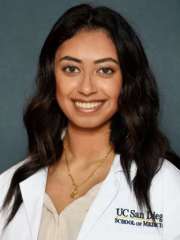
Soumya Ravichandran
Soumya is currently a third-year medical student at UC San Diego School of Medicine after completing her BS in psychobiology at UCLA. For the last six years, she has been actively involved in the Church Lab researching the brain-gut-microbiome axis with an emphasis on neuroimaging modalities.
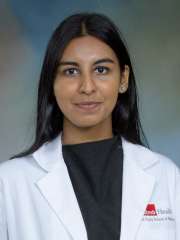
Riya Sood
Riya graduated cum laude with a degree in psychobiology from UCLA. She is currently a second-year medical student with an interest in investigating how alterations within the brain-gut-microbiome axis drive hedonic eating behaviors contributing to obesity. She also has a keen interest in neuroimaging as a tool to study obesity-related changes in brain structure, function, and connectivity and the impact of various social determinants of health.
Study Coordinators
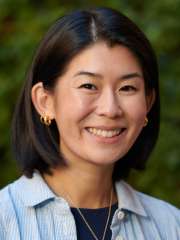
Marika Dy, MPH
Marika joins the Vatche & Tamar Manoukian Division of Digestive Diseases as a clinical research coordinator. She was previously a research data analyst at UC San Francisco, leading and supporting studies related to digital health, patient safety and “food as medicine” interventions. She has an MPH in community health sciences from UCLA and a BA in biological sciences from Wellesley College.
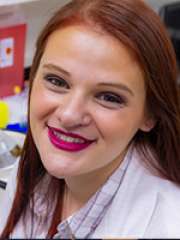
Allison Vaughan, MPH
Allison is a recent graduate of Stony Brook University in New York with a master’s in public health and data analytics. Before she joined the G. Oppenheimer Center for Neurobiology of Stress and Resilience, Allison was a study coordinator investigating caregivers’ perceptions of asthma and obesity in their children. She also assisted with a beta-trial of a new app to help caregivers track their child’s asthma.
Team
- Ming Wei Hung - Programmer Analyst
- Cathy Liu - Programmer Analyst
- Rachel Sarnoff, MD - Health Sciences Clinical Instructor of Medicine
- Priten Vora - Programmer Analyst
Graduate Students
- Ravi R. Bhatt
- Elena Coley
Collaborators
- Lisa Aziz, PhD (USC)
- Aron Barbey, PhD (University of Illinois-Urbana Champaign)
- Robert Barry, PhD (Harvard)
- Susan Bookheimer, PhD (UCLA)
- John Cryan, PhD (APC, Republic of Ireland)
- Dan Del Rio, PhD (Parma University, Italy)
- Johnny Figueroa, PhD (Loma Linda University)
- Chris Gill, PhD (Ulster.University, UK)
- Rima Kaddurah-Daok, PhD (Duke University)
- Valter Longo, PhD (USC)
- Paul Ross (APC, Republic of Ireland)
- Catherine Stanton (APC, Republic of Ireland)